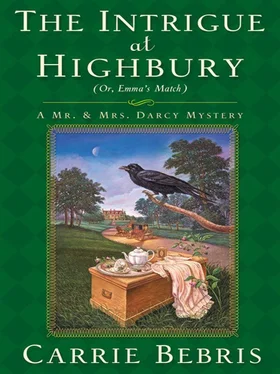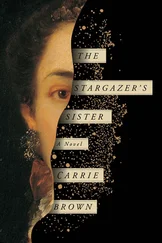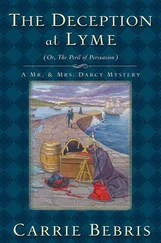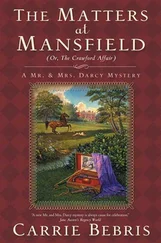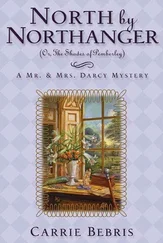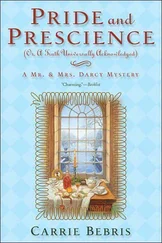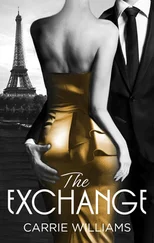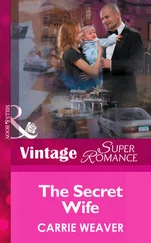She told Miss Bates that she looked lovely, and meant it. “I was tempted by those combs myself when I saw them among the peddler’s goods, but I am glad you bought them, for they look so nice in your hair.”
“Oh, I did not buy them! I had been telling Mr. Deal all about Jane’s good fortune in marrying Frank, and how Frank had lately had some of his late aunt’s jewels reset in a pair of hair ornaments for Jane, when he produced these combs. They were so pretty, and such a story Mr. Deal told! — but he would not name a price. He insisted on giving them to me — positively insisted — said he hoped they would bring me good fortune. But I am already so blessed — we have such good friends — kind, dear friends, such as yourself — not to mention a new nephew who will now ensure Jane’s happiness — How could I possibly be in want of more good fortune?”
Emma smiled. If only Miss Bates knew what fortune this night might bring.
Emma had identified three gentlemen on tonight’s guest list as particularly promising candidates for Miss Bates’s hand: the Reverend Mr. Wynnken, Mr. Timothy Nodd, and Major Oliver Barnes-Lincoln. All were unmarried gentlemen between the ages of two score and three. Each had a respectable profession — the church, the law, the army — that would enable him to provide Miss Bates a comfortable establishment suitable for a gentlewoman. These were also professions that would enable the groom to spend time out of the house — away from Miss Bates’s chatter — as needed.
The guests began to arrive. Miss Bates greeted local families with the ease of familiarity, and persons less well known to her with delight.
“Mr. and Mrs. Perry! How good of you to come. Jane looks radiant, does she not? It must please you, Mr. Perry, to see Jane in such a fine state of health after your kind ministrations to her earlier this year. Yes, love does work wonders — Mrs. Goddard! Indeed, it is a new gown… why, thank you, I am most obliged for the compliment; I do not think I have ever owned anything like it. — Oh, you are Major Barnes-Lincoln! Colonel Campbell speaks so highly of you, Major. You are most welcome in Highbury. How do you find it?”
Major Barnes-Lincoln replied that he liked it quite well, and lingered a few moments longer than necessary — at least, in Emma’s hopeful perception — before seeking the company of Colonel Campbell.
Mrs. Elton, upon entering with her husband, was astonished to find Miss Bates in a new dress, and her approval of it was all hyperbole and insincerity. She took as a personal slight the notion that Miss Bates should have acquired the garment without her involvement. “My dear Miss Bates, you are such a sly creature! I never guessed you were planning a second gown all the while I toiled to make the first just so. Had I known, I could have advised you on this one as well. I see you chose a plain skirt — I would have suggested beadwork, or perhaps more ribbon.”
“It was a surprise from Miss — Mrs. Knightley. Miss Woodhouse, I almost said. Forgive me, Mrs. Knightley, you are so recently married that I nearly forgot myself. But yes, the gown was a surprise — a most delightful surprise.”
At this intelligence, Mrs. Elton’s countenance hardened. “A surprise from Mrs. Knightley?” She turned to Emma with a smile that did not reach her eyes. “You must be very confident in your judgment, to risk imposing your own preferences on someone else.”
Emma was happily spared the necessity of replying by the entrance of Mr. and Mrs. Patrick Dixon. When the butler announced the couple, Mrs. Elton immediately turned around to assess Jane’s dearest friend — the former Miss Campbell — and her husband.
Emma averted her gaze, ashamed to recall the unkind speculation in which she had engaged last spring, that Jane Fairfax had developed an improper attachment to Mr. Dixon before his marriage to her friend. Had Emma kept the supposition to herself, she might now meet him without a blush, but she had carelessly shared her suspicions with Frank Churchill, who had encouraged her error so as to divert her notice from his own feelings for Jane. Though she had forgiven Frank his duplicity, she could not yet hear the name “Dixon” without mortification. Fortunately, Mr. Dixon himself remained unaware that he had ever been the object of calumnious conjecture.
A Mr. Thomas Dixon accompanied the Patrick Dixons. Thomas, Emma had been given to understand, was some sort of cousin, one of those adjunct relations that every family has and nobody else is quite sure as to which particular limb of the family tree they occupy. All she knew was that he was a younger son of some forgotten Irish landowner, and was dependent upon Patrick Dixon for his maintenance. Emma was surprised to learn that he had been among the party at Weymouth that had given rise to her suspicions regarding Jane Fairfax and Mr. Patrick Dixon, for neither Frank Churchill nor Jane — nor Miss Bates, who could be counted upon to blurt out every known particular about her niece at some point — had ever alluded to his presence at the spa town during the period of Frank and Jane’s meeting and clandestine courtship.
Having heard that Thomas was a younger son, Emma had formed a picture in her mind of a young man. Upon meeting him in person, however, she was surprised to discover that he was in fact considerably older than Mr. Patrick Dixon. From the grey at his temples and the laughter-lines about his animated blue eyes, she would guess him to be in his middle forties. She also had not been expecting a gentleman of such flamboyant appearance. He was dressed to the nines in a formfitting bright blue double-breasted dress coat and a shirt so ruffled that it erupted from his waistcoat in an avalanche of lace. Snug yellow pantaloons and silk stockings accentuated his trim figure and led the eye to low-heeled patent leather pumps with jeweled buckles. His cravat was so intricately tied that Beau Brummell himself would approve; white gloves and a tall-crowned silk top hat completed the ensemble.
“Mrs. Knightley — it is already a delightful party, and it has barely begun!” Thomas Dixon clasped her hand and raised it to his lips. “May I say, you are wearing the most exquisite gown. And your slippers — they must have come from Willis in London.”
When Emma confessed that they had not, Thomas Dixon nevertheless complimented her taste. “It is far superior to that lady’s,” he said in a conspiratorial whisper. “Her shoes are simply all wrong.” Emma followed his gaze; he was looking at Mrs. Elton.
She liked him already.
At last, Emma had received all her guests and was free to mingle among them whilst awaiting the call to dinner. Major Barnes-Lincoln remained in conversation with Colonel Campbell, and had been joined by one of Mr. Weston’s old militia acquaintances. Mr. Nodd and Mr. Wynnken were engaged in separate conversations of their own; Emma would steer Miss Bates toward one of them as soon as the spinster had done arranging her mother near the fire. Mr. Woodhouse was already seated nearby with Emma’s sister, Mrs. Weston, and Mr. Perry, all of whom were assuring him that the soup would not be over-rich, nor the pork over-salted, and that no harm would come of the diners’ indulging in syllabub if the portions were kept quite small.
All was proceeding smoothly.
Nearly all, that is. Mr. Edgar Churchill seemed rather out of sorts as he stood off to one side of the crowded drawing room with Frank and Jane. Edgar held in his hand a glass of wine — his third — despite the fact that no one else drank. He had complained of thirst almost immediately upon his arrival, had of course been accommodated, and quickly swallowed two glasses. He now appeared much redder in the face than when Emma had received him. Frank’s palm rested on the decanter, though Emma could not tell whether he stood ready to refill Edgar’s glass yet again, or to prevent his uncle from doing so himself. She hoped it was the latter. Edgar needed no more wine at present. The hand supporting his wineglass trembled, threatening to spill its contents on the Persian rug; the other fluttered nervously at his side, fingers thrumming against his leg.
Читать дальше
